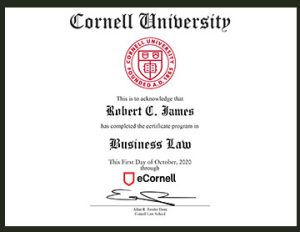Please sign in first
Not a member?

- Home
- Online Education Programs
- RG/RGA Legacy Entrance
- ISG Credentials
- Frequently Asked Questions
- Registry of Graduates
- Careers in Gemology
- Important Program Information
- Newsletters
- Identifying Lab Created Diamonds
- Black Diamond or Created Moissanite?
- Ebay, the GIA, and Section 230
- Lessons From the Angry Janitor
- Exposing the Truth about Lab-Created Diamonds
- AGTA Hobbles Dealers and Buyers
- Appraisers -v- Gem Labs…a Legal Imbalance!
- Understanding the Classification of Diamonds
- Cremation Diamonds: Insuring and Litigating
- Let’s Talk About Gemology Credentials
- Hometown Jewelers and the Force Majeure Clause
- Following the Critical Angle of Diamond Grading
- When Breitling Brought the Airmen Home
- Let’s Open a Refractometer
- Measuring the Energy of Light
- Quick Reference Guide to Sunstone
- ISG Seeing the Invisible Light
- Contact Us
Hometown Jewelers and the Force Majeure Clause
Hometown Jewelers and the Force Majeure Clause!
When the unknown can cost you more than you realized.
 It is the moment that you, your store, your reputation, and your money are at their most vulnerable. With one stroke of the pen, you put everything on the line. Nope, it is not your store lease. Not your bank loan. Not even your marriage license (although that comes in a close second). It is the jewelry repair take-in desk of your hometown retail jewelry store.
It is the moment that you, your store, your reputation, and your money are at their most vulnerable. With one stroke of the pen, you put everything on the line. Nope, it is not your store lease. Not your bank loan. Not even your marriage license (although that comes in a close second). It is the jewelry repair take-in desk of your hometown retail jewelry store.
That stroke of the pen when your usually least-trained staff member puts your entire enterprise on the line. It happens in the very finest of jewelry stores. Here is how it recently happened to one:
A customer brings in a ring to be repaired. The take in person checks the center stone with an electronic tester: Diamond! The diamond is pink. So, the take-in ticket / customer receipt is filled out as “One pink diamond”.
 The repair work is completed, ring cleaned in the ultrasonic, no problem. But somehow as the ring is being specially cleaned for new rhodium plating, a pink diamond goes in, a colorless diamond comes out. Yep, the diamond was coated. A customer comes in to pick up her ring and finds a colorless diamond where her pink diamond once sat.
The repair work is completed, ring cleaned in the ultrasonic, no problem. But somehow as the ring is being specially cleaned for new rhodium plating, a pink diamond goes in, a colorless diamond comes out. Yep, the diamond was coated. A customer comes in to pick up her ring and finds a colorless diamond where her pink diamond once sat.
Note: Images above are from ISG course notes and not from the situation being discussed.
Unfortunately, the diamond was sold to the customer without disclosure of the treatment, which made the situation even more dire. The customer immediately accuses the jeweler of switching her pink diamond out with a colorless diamond, threatens legal action, and calls the District Attorney to file criminal charges. The case would have been a slam dunk for the District Attorney and the customer’s lawyer.
Fortunately, the store had a long and solid reputation in the town. Chaos was averted not only by their reputation but also by their actions to resolve the situation, which included replacing the diamond.
This situation was created by one major problem: Failure to accommodate what in legal terms is called: “Force Majeure”. “Force Majeure” is known as:
“an event or effect that can be neither anticipated nor controlled.”
Black’s Law Dictionary.
“Force Majeure” and Jewelry Store Repairs
The take-in ticket at a jewelry store is a contract. A contract between the jeweler and the customer where the jeweler agrees to perform a specific service in return for a specific payment from the customer. The problem is, rarely do these take-in receipts cover: Force Majeure. Here is how the Legal Information Institute of Cornell Law School defines a Force Majeure clause in a contract
“A provision commonly found in contracts that frees both parties from obligation if an extraordinary event prevents one or both parties from performing”
In our case above, the take-in receipt could have protected the jewelry store from liability of the unseen coating on the diamond if the take-in ticket had a Force Majeure provision written into the disclosure information.
Assigning Liability for Force Majeure
When it comes to undisclosed treatments that can affect a repair contract, someone must accept liability for unforeseen events such as outlined above. It is common for consumers not to be informed of treatments such as glass filled rubies and diamond coatings that can adversely impact a repair contract. However, it is still the consumer who must accept the risks of undisclosed treatments and the potential impact of normal repair procedures on those treatments. It is not reasonable that a jewelry store accept liability for Force Majeure with a $25,000.00 diamond ring for a $100.00 repair job. This, of course, deals with undisclosed treatments and not defective jeweler workmanship. The key is to put a Force Majeure clause in every repair take-in receipt and make the customer aware of this fact.
Here is an example of a Force Majeure clause to consider for your take-in receipt. You should check with your local attorney to adjust this to your specific needs:
“It is the customer’s responsibility to inform us of any treatments to their gemstones at the time the item is left for repair. “Your Name” Jewelers does not accept liability for any undisclosed gemstone treatments that may be discovered during repairs, and the potential impact those treatments may experience interacting with our repair procedures.”
While this will not solve the problem of undisclosed treatments and their impact on retail jeweler’s repair work, it will place the risk and liability for damages on the consumer to know what they are bringing in.
Again, consumers are usually not aware of treatments to their gemstone set jewelry. But hometown, independent retail jewelers performing repairs on that jewelry should not be the ones to take responsibility for a problem another dealer created.
Force Majeure is a condition built into every contract in other businesses. I urge you to consider adding it to your repair take-in receipt.
Robert James FGA, GG
President, International School of Gemology
Global Claims Associates, Adjusters, and Investigators
Property and Casualty Adjuster, Texas Department of Insurance #1300433
Member: National Association of Independent Insurance Adjusters
Affiliated Professional Member: American Bar Association
 Note: While I have earned the Business Law Certification from Cornell Law School and studied these issues, I am not a lawyer. You should consult with your local attorney for any and all legal advice regarding your store’s policies. Rj
Note: While I have earned the Business Law Certification from Cornell Law School and studied these issues, I am not a lawyer. You should consult with your local attorney for any and all legal advice regarding your store’s policies. Rj
